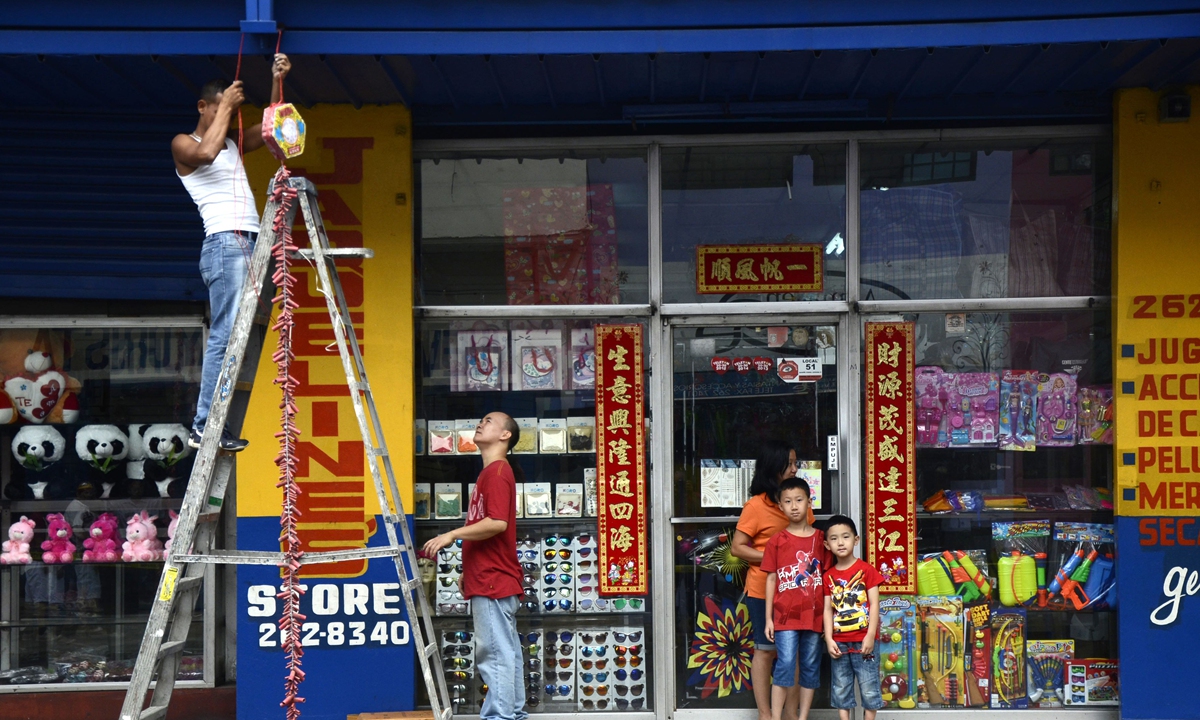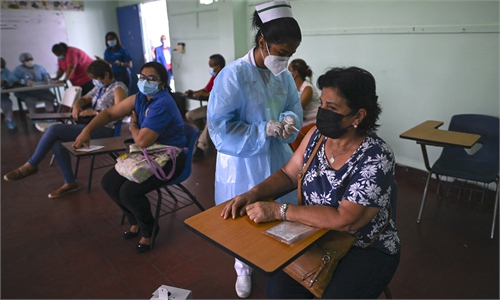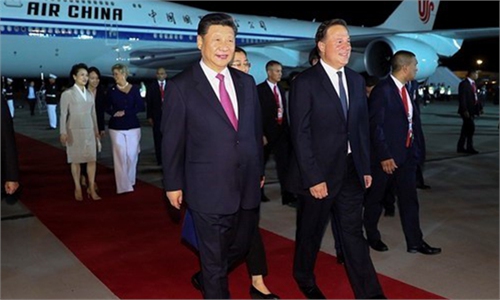Chinese netizens react warmly to Panama’s move to list Chinese New Year as national holiday

Members of a family hang firecrackers in front of their shop during a Chinese New Year, or Spring Festival parade in Chinatown in Panama City on February 8, 2016. That year the Chinese community celebrates the Year of the Monkey. Photo: VCG
As the Panamanian government prepares to celebrate the Chinese New Year in 2022 as an official national holiday, Chinese citizens have applauded the country's plan, calling it "very pragmatic" when it comes to the two countries' diplomatic relations.The Panamanian government announced that the Chinese New Year, or Spring Festival, will be listed as a national holiday in Panama from 2022, the Xinhua News Agency reported Friday.
The decision will boost the country's tourism economy, meanwhile acknowledge the contributions of Chinese-Panamanian to the country's "ethnic diversity and multiculturalism," noted Ivan Eskildsen, minister of Panama's National Tourism, at a press conference.
"The country is working together with the Chinese Embassy in Panama to plan 2022 Spring Festival celebrations, which are expected to generate over $100 million in economic output," Eskildsen said.
In addition, "by holding nationwide events, Chinese in Latin America can gather in Panama and celebrate the traditional Chinese festival," said Panama Minister of Culture Carlos Aguilar.
With about 200,000 Chinese living in the country or about 5 percent of its total population, Panama has one of the most populated ethnic Chinese communities in Central America.
Some Chinese netizens have questioned whether the decision was made out of "real concern for the Chinese living and working in the country" or merely an attempt to boost the country's economy.
But many others looked at this decision on the brighter side, saying they believe that a "national celebration will cheer up the Chinese living in Panama, even if it is just an attempt to boost international tourism."
"I hope it can enhance a sense of belonging among local Chinese toward the traditional culture during Spring Festival and attract Chinese from some neighboring countries to participate," posted one netizen.
On June 12, 2017, China and Panama established diplomatic relations. Since then bilateral relations have developed rapidly.
"In the less than five years of diplomatic relations, Panama has been leading the way in its pragmatic foreign policy towards China," read one comment on China's Sina Weibo.
"There has been a more than 100-year history of Chinese living in this Central American nation, where "the arrival of Chinese in Panama can be traced back to the mid-19th century," Aguilar told Xinhua.
At the beginning of the 19th century, due to the increase in transportation volume and the development of the railway technology, the construction of a railway in Central America to connect freight channels was an important solution at that time.
Construction of the Panama Railway started in 1850, yet the harsh jungle environment caused trouble for foreign workers as thousands of workers died from various infectious diseases.
The Panama Railway Company then hired Chinese workers who sent delegations to the provinces of Guangdong and Fujian in China to recruit workers.
It is estimated that from 1850 to 1854, as many as 4,000 Chinese workers were transported to Panama to help build railways, according to records.
Global Times



